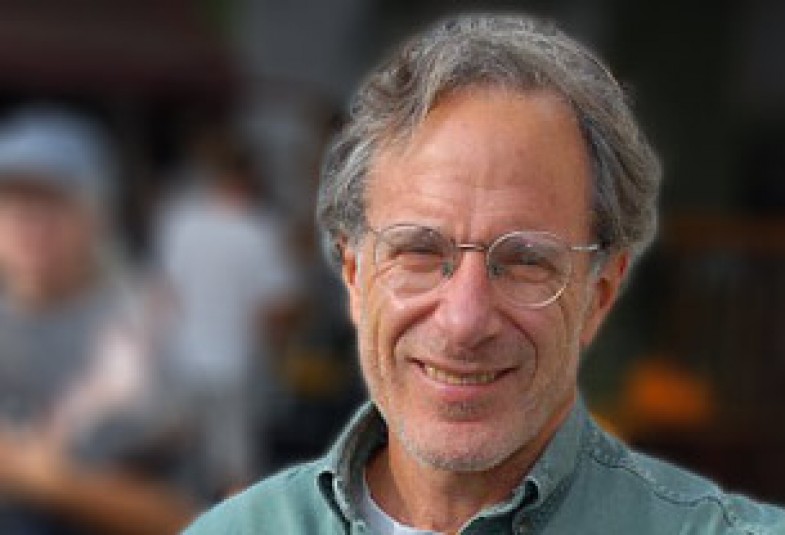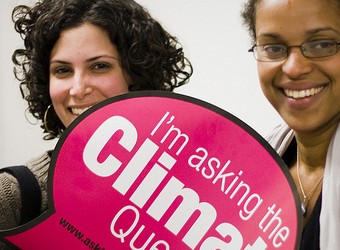One of the sharper satirical jabs in People, a recent play by the English writer Alan Bennett, occurs when a consortium of wealthy investors decides to purchase Winchester Cathedral. “I know it’s pricey,” says an absurdly practical-minded archdeacon, “but Winchester is such a good idea.” “Isn’t it?” replies the consortium’s smooth-as-silk agent. “And after all, the school is private, so why shouldn’t the cathedral be private too?” Warming to the topic, the archdeacon proposes “a series of exclusive celebrity Eucharists [for] leading figures in business, sport, and the world of entertainment.”
What makes the joke funny is our understanding that a hallowed monument like Winchester Cathedral could never belong to anyone but the public. Technically it was once the property of the Catholic Church and later became the property of the Church of England (after Henry VIII seized it). But throughout history it really belonged to the townspeople and more distant visitors who came there to worship, to witness weddings or funerals, to admire its famous chantry chapels and great stone screen, to pay respects to Jane Austen (who’s buried there), or maybe just to hum a few bars from the 1966 novelty hit song (“Winchester Cathedral / You’re bringin’ me down / You stood and you watched as / My baby left town”). Winchester Cathedral is what architects call a “public space,” which is to say it would have no function were not large numbers of ordinary people—most of them Anglican, many non-Christian, some agnostics or atheists—impelled to assemble there on equal terms, as they’ve been doing for more than a thousand years.
Jonathan Rowe, alongside whom I worked at the Washington Monthly in the early 1980s, and who died two years ago at the distressingly young age of sixty-five, would describe Winchester Cathedral as part of “the commons.” By “commons” he meant things that are widely shared as a matter of law or sometimes mere convention. In the most literal sense, a common is a public park, like Boston Common. But in the broader sense commons can mean anything that’s available to all takers for at most a nominal fee. It can be a work of timeless literature no longer under copyright. It can be an invention of enormous societal value on which a patent either expired or (as in the heroically selfless cases of Jonas Salk’s polio vaccine and Tim Berners-Lee’s World Wide Web) was never claimed. It can be the air we breathe, or the water we drink. It can be an experience we all go through, such as childhood or old age. It can be the absence of something we hate, like noise. It can be Wikipedia. It can be an ocean beach. It can be free Wi-Fi. The commons is a realm that lies outside conventional market economics, but that nonetheless creates wealth—sometimes monetary, sometimes spiritual or psychic—for us all.
That’s the basic message of Our Common Wealth: The Hidden Economy That Makes Everything Else Work, a posthumous volume that Rowe’s friend Peter Barnes—policy entrepreneur, lefty capitalist, and onetime West Coast correspondent for the New Republic—edited from Rowe’s published writings and from unpublished fragments of a book that Rowe left unfinished at his death. Rowe’s efforts to deliver a completed manuscript were, it seems, a bit unfocused (meeting deadlines was never Jon’s forte), but his thinking on various aspects of this topic was characteristically elegant, thorough, and organic. Barnes has deftly arranged the pieces into a compelling manifesto. Indeed, my only complaint is that there’s an oversupply here of explanatory material (written by Barnes and author-activists Bill McKibben and David Bollier) where a single foreword would have sufficed. This is testament more I think to the admiration so many of us felt for Jon than to any real need to provide context. The bricks of Rowe’s argument, as arranged by Barnes, fit snugly and sturdily without mortar.
Our Common Wealth makes the case for the sort of social arrangements that are seldom acknowledged except to be attacked or dismantled. The jumble of shared institutions, places, resources, and human experience that constitute the commons have taken a beating during the past four decades as the conservative ascendency has expanded market theory into various areas where it didn’t belong. Before 1987, for example, broadcasters were required by government to present both sides of all public issues on what were, after all, public airwaves. That ended, and the era of shrill talk radio began, with the Federal Communications Commission’s abolition of the Fairness Doctrine. Another example of the commons’ embattled state is the deliberate shrinkage of the public domain for literature and other creative works. Originally, copyright protection lasted only fourteen years. As recently as 1976, it lasted the author’s lifetime plus twenty-eight years (with an option for heirs to renew for another twenty-eight). Two subsequent laws eliminated the renewal requirement and expanded posthumous copyright protection to seventy years, in effect burdening the national conversation with one or two additional generations of rentiers. “If this expansion has brought a corresponding improvement in literary quality,” Rowe observes drily, “it is not apparent from the bestseller lists.”
During the past forty-odd years the idea of the commons has taken a beating as well, thanks to a widely read essay (first published in Science in 1968) called “The Tragedy of the Commons.” The author, a professor of biology at the University of California Santa Barbara named Garrett Hardin, posited a “pasture open to all” on which herdsmen’s cattle grazed. For each herdsman, Hardin calculated, the (individual) benefit of adding one additional animal to the pasture far exceeded the (shared) cost of overgrazing. As each herdsman pursued his rational self-interest the pasture would gradually be destroyed. Hardin intended his essay to be a warning about overpopulation, but privatization advocates seized on “The Tragedy of the Commons” as a parable demonstrating the utter futility of public or any other type of shared ownership. When everybody is responsible, no one is.
Hardin’s theory was not without value. It’s a useful template, for instance, for appreciating why it’s maddeningly difficult to organize the world’s nations to address the growing dangers of climate change. On a more humble plane, it explains why office refrigerators, coffee makers, and sinks are always an ungodly mess. Indeed, I remember Jon himself long ago posting an exasperated written plea to our Monthly office mates (“Be reality-based!”) to better maintain a shared office hot pot in which he frequently brewed soups and teas.
But as Rowe points out in Our Common Wealth, the construct put forth in “The Tragedy of the Commons” is “an extrapolation from assumptions rather than an investigation of reality.” Had Hardin bothered to consult empirical evidence, he would have learned that back in the days when actual farmers really did share land for hunting, foraging, and grazing, they did not behave like the utility-maximizing clods in his theoretical model. They worked together, sharing tools and labor to maintain these precious plots of land so that successive generations could prosper in the same place. This “worked well for hundreds of years,” Rowe writes.
Similar examples abound. Spain has maintained shared irrigation systems for 600 years, with farmers receiving water on a rotating basis and, during droughts, giving the most vulnerable crops the highest priority, regardless of who happens to own them. In the Swiss Alps, grazing pastures and forests continue to operate on the commons principle. And so on. Elinor Ostrom won a Nobel Prize in economics in 2009 for laying out such examples by way of refuting Hardin’s theory. Reviewing all available evidence, Ostrom was able to demonstrate that people and societies were much more willing than previously supposed—and much more competent—to work together to solve common problems. So maybe we can lick that global-warming problem after all.
The office kitchen, alas, remains a hopeless case, probably because too few employees make use of it for the office as a whole to care whether it becomes a pigsty or not. Rowe doesn’t revisit the tragedy of the Monthly’s hot pot (whose resolution I no longer recall). But he does make the related point that a commons depends for its success on the willingness of its target community to use it. Large and beautiful public spaces often fail, Rowe notes, because the architect didn’t heed the journalist William H. Whyte’s homely observation that the public won’t usually gather any place it can’t sit down. Stairs will do at least as well as chairs, and many may not sit down at all, but people like to know they can. Acting on this principle, Rowe and a friend fixed up a couple of old garden benches they had lying around and put them in a vacant lot next to a popular bakery in Point Reyes Station, California, where they lived. The lot instantly became a de facto public park, and eventually a local nonprofit that Rowe helped to found formally leased the land for public use. Today, Barnes informs readers, locals call the place “Jon Rowe Park.”
Rowe’s celebration of ancient-but-durable communal resources like the town square raises the question of whether his ultimate quarrel was with modernity. Rowe was reared in a conservative household, and though his politics subsequently turned leftward, he never entirely lost his distaste for big government. (We sometimes argued about that; I feel more comfortable with bigness.) The commons worked best, Rowe felt, when it stood apart from both government and commerce, which is why Rowe would have howled with laughter at Alan Bennett’s use of Winchester Cathedral to lampoon market worship. (Though a state-established religion, the Church of England isn’t really part of the British government.) Rowe remained enough of a conservative to experience sincere irritation that Reagan Republicans ignored the critique of commercial culture set forth in one of their movement’s founding documents, Russell Kirk’s 1953 book, The Conservative Mind. “Kirk was in some ways a fusty aristocrat,” Rowe writes, “but he was honest enough to acknowledge as a conservative that markets need boundaries, just as the state does.” Kirk’s Burkean-style conservatism, which emphasized “community, locality, tradition, and virtue,” has been displaced, Rowe complains, by a “politically expedient and cynical” conservatism that boils down to “a belief that it is okay to waste the patrimony so long as somebody makes money doing it.”
But if Rowe remained in some respects a conservative, he was anything but anti-modern in celebrating the commons’ single biggest contemporary success story. That is, of course, the World Wide Web. Rowe likens local efforts to expand broadband access to the New Deal’s expansion of rural electrification. Just as Rowe’s conservative stepfather, reared in rural Texas, savored the childhood memory of first tasting refrigerated milk on a brutally hot summer day courtesy of Franklin Roosevelt’s Rural Electrification Act, so some self-made conservative economist may one day reminisce to his children about the first time free municipal Wi-Fi enabled him to watch Milton Friedman absolve private business of any responsibility for the Great Depression. Al Gore famously referred to the Web, during its infancy, as an “information superhighway,” but Rowe likens it, more modestly, to a sidewalk. Like a sidewalk, the Web is at least as much a gathering spot as it is a route to any particular destination. More than its high-speed efficiency, Rowe admires the Web’s ability to create serendipitous connections. Wikipedia, Rowe writes, is a similarly social phenomenon, enabling people to share expertise free of charge “not because they are saints” but because “something in our nature wants to be engaged with other people.”
A glory of the Web and Wikipedia, like the glory of the commons in its older forms, is that it’s something we all possess that we don’t have to think about. One message of market fundamentalism is that we must never, ever take anything in life for granted. “When did that stop?” asks a sympathetic character in Bennett’s People. “Taking things for granted.” The 1980s, the archdeacon answers matter-of-factly. “Everything had a price. If it didn’t have a price it didn’t have a value.” Bennett has written that he, too, misses the pre-Thatcher feeling of taking good things for granted: “The state has never frightened me. Why should it? It gave me my education (and in those days it was a gift); it saved my father’s life as on occasion it has saved mine.” Replace the word “state” with “commons” and Rowe would nod in vigorous agreement. When we take too few of life’s riches for granted, we are all of us poorer, no matter how much cash we have in the bank. Jon understood that in his bones.








